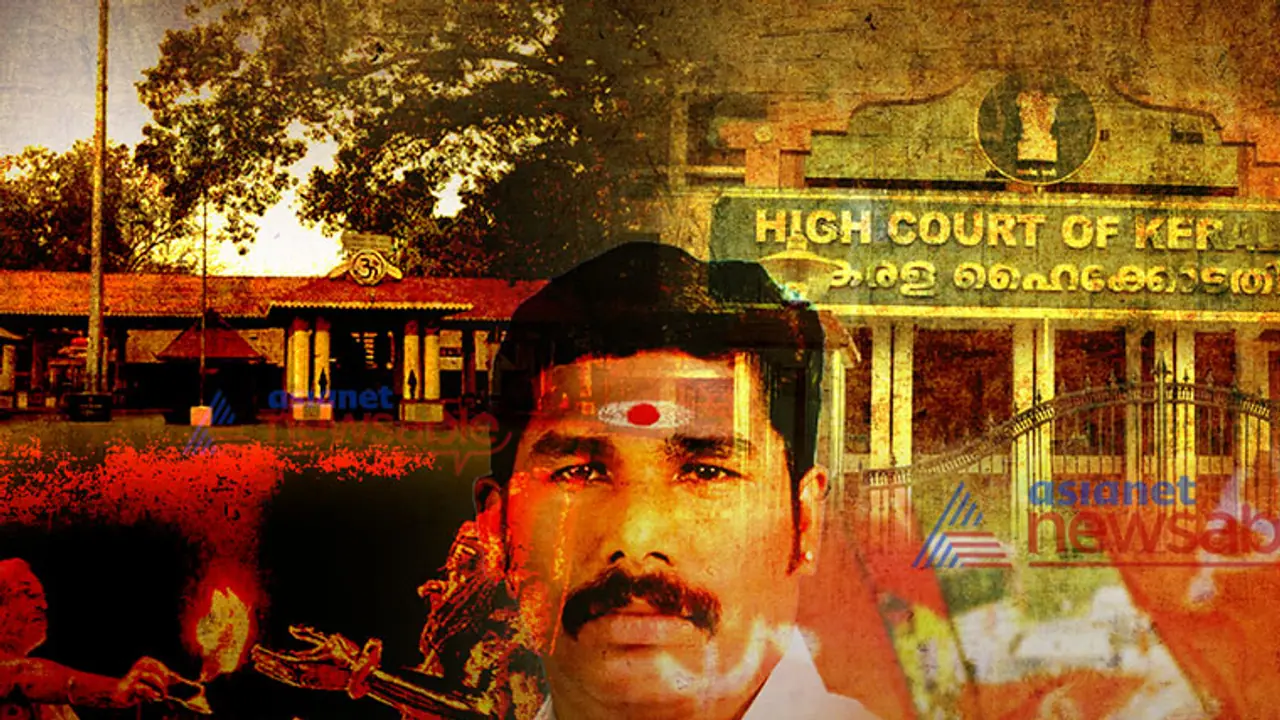Sudhi Kumar, a non-Brahmin priest, was transferred to Chettikulangara Devi Temple on June 14, 2017 Temple authorities denied his appointment stating that the move would invite the wrath of the deity Kerala High Court directed Travancore Devaswom Board to implement the appointment However, the Devaswom Board, instead of following High Court direction, cancelled the transfer order
Kerala had abolished the ban on Dalits from entering its temples through a royal proclamation long back on November 12, 1936. Yet it seems the state is still plagued by different kinds of untouchability, as is evident from the move of a temple to deny appointment of a priest from a non-Brahmin community.
It has been eight decades since the Maharaja of Travancore signed the historic Temple Entry Proclamation, allowing anyone to visit the temples, irrespective of their caste. But, the authorities of Chettikulangara Bhagavathi Temple in Mavelikkara, Alappuzha, are reluctant to accept the spirit of this revolutionary action and have approached court stating they are not ready to appoint a non-Brahmin as a priest, and that too fearing the curse from the idol.

Sudhi Kumar, who was serving as the Keezh Shanthi, assistant priest, at Puthiyidam Sree Krishna Swamy Temple, Kayamkulam, got transferred to Chettikulangara Devi Temple on June 14, 2016. He has functioned as a priest in various Kerala temples for the past 13 years, and it was based on this experience that the assistant commissioner of Mavelikara Devaswam appointed him at the Chettikulangara Devi Temple.
However, the temple administration was not ready to appoint him as the mel Shanthi, chief priest of Chettikulangara temple took an opposite stance. He wrote to the devaswom commissioner that only a 'Malayali Brahmin' priest well-versed in Shodasha samskara should carry out the rituals at the temple or it would invite the wrath of the goddess.
Travancore Devaswom Board backed his opinion stating that appointment of priests should be based on customs followed in each temple.
"However, this is against the Supreme Court ruling in 2012 that priests must be appointed on the basis of their knowledge of traditions and rites and not caste. Further, the main priest of the temple himself had appointed non-a Malayali priest there, which is contrary to his own stance in my case," Sudhi Kumar said.
He said that it is the Hindu Matha Convention that is opposing his appointment. When the matter came up before the convention, the chief priest again wrote a letter stating his reason for opposing the appointment.
"The Convention is called Sridevi Vilasam, which decides on administrative matters of the temple. However, such a practice does not exist in any other temple under the Travancore Devaswom Board. In all other temples, it is the administrative committees of the temples that take care of appointments and other matters. Such a convention is even against the bylaws of the Travancore Devaswom Board," Sudhi said.
Also read: Acid hurled on Dalit priest for conducting Vedic Classes
As the decision to keep the transfer in abeyance drew flak, the Hindu Matha Convention approached Kerala High Court on June 6, 2017, seeking an injunction for the transfer order. However, rejecting the plea, the court ordered to maintain status quo and asked the Travancore Devaswom Board to implement the order after consulting with the devaswom commissioner, convention and other concerned parties.
"I was transferred considering my seniority and norms. Withholding the order amounts to the violation of my fundamental right," he said.
However, the Devaswom Board decided to quash the transfer order rather than to implement the High Court order which sought his appointment. This is not an isolated case in Kerala, which is ruled by the Left government which came to power promising to ensure social equality and secularism. A temple in Kottayam district too had denied appointment of a non-Brahmin priest citing local temple customs. In June 2017, an acid attack was carried out on a non-Brahmin priest in Palakkad allegedly for conducting Vedic classes.
As the number of atrocities in the name of caste keeps on increasing in the state, all we can hope is that the situation will change with more non-Brahmin persons pursuing the priesthood.
